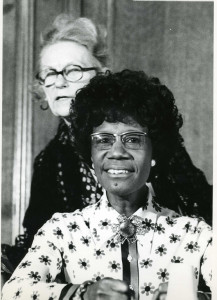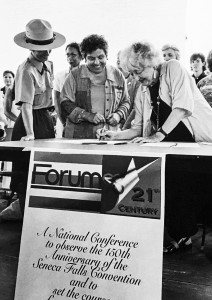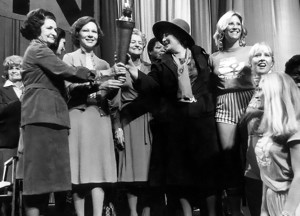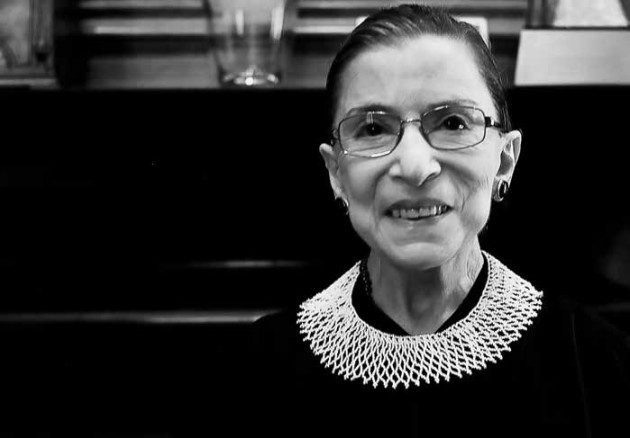Tag : bella abzug
July 27, 2020 by admin
Feminism and Its Backlash: The Real Events of “Mrs. America”
This multi-part made-for-TV documentary series that debuted Spring 2020 spotlights a generation of women who brought lasting change to the world. Think of women’s lives before the advent of second-wave feminism in the late 1960s and early 1970s! Lilith photographer Joan Roth was onsite for many of this era’s feminist conferences, and its backlash gatherings too; the “Mrs.” of the series’ title is Phyllis Schlafly, anti-feminist right-winger. Designated heroes included Betty Friedan, labeled the mother of the movement and author of The Feminine Mystique, the book that Gloria Steinem confesses—to Friedan, during one episode—changed her life; and Bella Abzug, nicknamed “Battling Bella,” U.S. Congresswoman (1971–73). The series also foregrounds Shirley Chisholm, the first African-American woman in Congress (1968), and the first woman and first African American to seek the nomination for president. The iconic images here are just a small sample from Roth’s extraordinary photo archives.
The Lilith Blog

Shirley Chisholm, the first African American woman in Congress (1968) and the first woman and African American to seek the nomination for president

Betty Friedan signing the renewed Declaration of Sentiments at Seneca Falls, September, 1977.

Bella Abzug passes the Olympic Torch to First Ladies at the National Women’s Conference, Houston, Texas
- No Comments
May 21, 2020 by Joan Roth
Original Pictures from the Real Events of “Mrs. America.”
Imagine America today, if only one women’s movement had arisen, instead of two…What the full power of womanhood might have wrought.
In July 1977, Harriet Lyons, then-editor at Ms. Magazine, and I attended the New York State women’s meeting in Albany, New York, in order to cast our vote for delegates to the first ever National Women’s Convention, funded by the federal government, that was to be held the following November at the University of Houston, in Texas. It was during this awesome moment that Bella was having one of her major fits, another friend recalls. Something triggered it–perhaps the selection of delegates.
- No Comments
April 20, 2020 by admin
Big Mouth, Big Ideas
Battling Bella: The Protest Politics of Bella Abzug by Leandra Ruth Zarnow (Harvard University Press, $35) is a comprehensive, sympathetic—but never hagiographic—biography of the first woman to serve as a whip in the U.S. House of Representatives, where she represented New Yorkers from 1971–1977. While the book does not shy away from highlighting Abzug’s harsh treatment of her staff, it also notes her unflinching demand for gender parity in hiring practices of political campaigns.
In addition to noting her contributions to feminist politics and movements, Zarnow also vividly describes Bella’s formidable persona (including her iconic hats and use of the phrase “Abzuglutely.”) We glimpse Abzug’s personal life through her decision to cross gender boundaries and say kaddish for her father—in 1934, when she was still a teenager—and her devastation later in life over her husband’s death.
The book deliberately situates Abzug as “a participant in the American Left,” and frequently refers to her push for social democratic policies both as an activist and as an elected congresswoman. Abzug won office in New York City as part of a wave of New Politics Democrats who were seeking to realign the Democratic Party in a more progressive direction.
The successes and failures of New Politics Democrats have defined the political landscape in the intervening years, and it is impossible when reading this biography not to hear echoes of our current political moment through its pages.
Zarnow makes this most explicit when she notes the Democratic Party’s introduction of “unelected superdelegates with voting powers in 1984 to keep insolent challenges… in check.” In effect, these unelected superdelegates were meant to curtail the more radical candidates and policies the New Politics coalition might bring up for a vote on the convention floor (e.g. their passage of a platform plank in 1980 which called for Medicaid funding of abortion). As the author mentions, the role of unelected superdelegates again caused controversy amongst a new crop of reformers in the 2016 election and was only partially reformed as a result in 2018. As the 2020 Democratic Party convention approaches, the structural impediment used to stop Abzug and others from pushing feminist politics still partially remains in place.
While it can be ahistorical to draw oo many one-to-one parallels from the past to the present, I think it is worth highlighting a few further similarities. The cadre of New Politics Democrats who were elected to Congress in the late 60s and early 70s is evocative of the “Squad” of insurgent Democratic congresswomen who won office in 2018, as is the sense of crisis motivating them. New Politics Democrats urgently sought to end the Vietnam War and avoid nuclear Armageddon with a similar fervor to how current organizers are seeking to stave off a coming climate apocalypse. The campaign calling for Alexandria Ocasio-Cortez (NY–14) to have a committee seat on Ways and Means mirrors both Abzug’s campaign to be on the Armed Services Committee in 1971 and Congresswoman Shirley Chisholm’s campaign to change her appointment away from the Agriculture Committee in 1969. Likewise, many of the same smears thrown at Abzug are similar to attacks currently leveled by the right. Particularly startling to me were the eerie parallels to the way in which attacks questioning the legitimacy of Abzug’s Jewishness parallel the smears leveled against many millennial leftwing Jewish activists, despite the divergent positions on Zionism between Abzug and many of the activists of my generation who are similarly attacked.
The 1960s and 1970s are not the 2010s and 2020s, and Zarnow effectively relays the climate and various political currents to her readership. The author advocates for re-evaluating the 1970s “not as an era of limits but as an imaginative, expansive” period. While there may be elements to this appeal worth considering, it is nevertheless inescapable that the ultimate inability of the New Politics Democrats to win a governing majority in the 1970s led away from social democracy to the consolidation of power in a neoliberal order. After losing her Senate bid in 1976, Abzug would never again return to elected office, though she had served as a Congresswoman for three terms.
The question facing those of us who share a similar vision of the world is whether our movement can avoid the same end. While Battling Bella does not provide clear answers to this question, it does provide a thorough depiction of one of the most iconic figures of the New Politics Democrats. By studying the past upon which our present is built, we can hopefully steer the course to a better future.
Amelia Dornbush works for a union in Michigan. She has previously written for Lilith and Democratic Left.
- No Comments
December 18, 2019 by Helene Meyers
7 Jewish Feminist Highlights of 2019

(Photo by Joan Roth) Ruth Bader Ginsburg
Between impeachment hearings, an overstocked Democratic presidential field, intensifying attacks on abortion rights, continued governmental atrocities against immigrants, and hate crimes against Jews and Jewish institutions, 2019 has been quite the year (and that’s understatement!). But as Deborah Lipstadt wisely counsels in her book Antisemitism: Here and Now, we need “to balance the ‘oy’ with the ‘joy.’” In that spirit, I offer my annual seven Jewish Feminist Highlights (seven being the number associated with creation and blessing in the Jewish tradition).
- No Comments
August 10, 2018 by Talia Lang
Five Quotes That Will Increase Your Chutzpah
From the JAP to zaftig to the belle juive, there are no end of Jewish stereotypes. Chutzpadik is probably one of the least painful, and incidentally one of the most gender-neutral. Here are 5 quotes from Jewish women, words that embody chutzpah in its most inspiring and hopeful forms.
“I’ve been described as a tough and noisy woman, a prize fighter, a man-hater, you name it. They call me Battling Bella, Mother Courage, and a Jewish mother with more complaints than Portnoy. There are those who say I’m impatient, impetuous, uppity, rude, profane, brash, and overbearing. Whether I’m any of those things, or all of them, you can decide for yourself. But whatever I am —and this ought to be made very clear—I am a very serious woman.” – Bella Abzug
- No Comments
 Please wait...
Please wait...